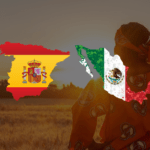Cultural Diplomacy in Modern Music – The Shakira Case Study
Cultural diplomacy serves as an essential bridge in the modern world, connecting diverse societies through the universal language of art. In an era where digital platforms and social media have globalized entertainment, music artists have emerged as unofficial ambassadors of their cultures, wielding significant influence over global perceptions.
One artist who has masterfully navigated this role is Shakira. Her unique blend of Latin, Arabic, and Western musical influences has not only catapulted her to international fame but also positioned her as a case study in the impact of music on cultural diplomacy.
With the release of her new album, anticipation is high not only for the music itself but for the cultural narratives it will convey.
Shakira’s Musical Journey and Its Cultural Impact
Shakira’s journey from a young Colombian singer to a global music icon is a testament to the power of cultural fusion in music. Her career took off with the release of “Pies Descalzos” in 1995, marking the beginning of her ascent to international stardom. By integrating elements from her Lebanese heritage, such as Arabic melodies and rhythms, with Latin and Western pop sounds, Shakira created a musical style that resonates with a global audience.
Her ability to seamlessly blend these diverse influences has acted as a bridge between cultures, promoting a message of unity and understanding through her music. Hits like “Whenever, Wherever” and “Hips Don’t Lie” have topped charts worldwide, demonstrating the universal appeal of her sound. Additionally, her involvement in various philanthropic efforts, such as her work with the Barefoot Foundation, further exemplifies her role as a cultural ambassador, using her platform to advocate for education and support for underprivileged children across the globe.

In light of her new album, “Las Mujeres Ya No Lloran,” Shakira continues to evolve musically while maintaining her commitment to cultural diplomacy. The album, her first in seven years, promises to be a soundtrack of strength for listeners worldwide, addressing themes of empowerment, resilience, and personal growth. With collaborations spanning various genres and cultures, it further cements her position as a music artist deeply invested in bridging cultural divides and fostering global understanding through her art.
The Role of Music Artists as Cultural Diplomats
In the music industry, a cultural diplomat is an artist who utilizes their influence, platform, and music to foster intercultural dialogue, promote understanding, and bridge cultural divides among global audiences. These artists transcend the entertainment value of their work, embedding messages of unity, peace, and global awareness within their music and public actions.

One example of action by Shakira is her Fundación Pies Descalzos, founded in 1997. It has been a beacon of hope and transformation for the children and youth of Colombia. With commitment to improving public education, the foundation has tirelessly worked to ensure that every child and adolescent has access to quality education. By developing educational infrastructure, fostering effective educational practices, and ensuring school accessibility and retention, Pies Descalzos has created a nurturing environment conducive to learning.
The foundation’s projects span across Colombia, including La Guajira, El Catatumbo, Quibdó, Cartagena, and Barranquilla, benefitting thousands by providing quality educational spaces. With a growing number of alliances and support from various organizations, the foundation’s impact has been profound, significantly increasing the number of children receiving quality education over the years. Shakira’s humanitarian goals through Pies Descalzos are clear: to empower the youth of Colombia through education, paving the way for a brighter, more equitable future.
Artists like Shakira epitomize the role of cultural diplomats by leveraging their global platform to champion social causes, advocate for education, and celebrate multiculturalism.
Analyzing Shakira’s New Album Through the Lens of Cultural Diplomacy
Shakira’s latest album, “Las Mujeres Ya No Lloran,” is a vibrant tapestry of musical styles, thematic depth, and collaborative spirit that mirrors the complexities of global issues and the beauty of diverse cultural narratives. Through her lyrics, Shakira addresses themes of empowerment, resilience, and self-reliance, resonating with listeners worldwide and offering a source of inspiration and solidarity.
The album stands out for its fusion of musical styles, incorporating elements from reggaeton, pop, and traditional Latin sounds, to name a few, showcasing Shakira’s ability to transcend cultural and musical boundaries. This blend not only highlights her versatility as an artist but also serves as a metaphor for the interconnectedness of the global community.
The collaborative nature of the album, featuring artists from various backgrounds, shows the potential of music to foster understanding and bring to light universal themes that transcend geographical and cultural barriers. Through “Las Mujeres Ya No Lloran,” Shakira continues her mission of uniting people through music, demonstrating the power of art as a catalyst for social change and cultural appreciation.
The Global Reception of Shakira’s New Album 2024
Critics have lauded Shakira for her ability to weave various musical styles—from Afrobeats to Latin pop—into a cohesive narrative that resonates with a wide audience.
Social media and digital platforms have played a pivotal role in amplifying Shakira’s message of empowerment and cultural diplomacy. Through platforms like YouTube, where the video for “TQG” has garnered over a billion views, and Spotify, Shakira has been able to reach a global audience, transcending geographical barriers. Her strategic use of these platforms not only promotes her music but also facilitates a broader conversation about cultural understanding and appreciation.

Critics, such as Thania Garcia from Variety, have praised Shakira’s “Las Mujeres Ya No Lloran” for its bold exploration of love, heartbreak, and self-discovery. The album has been described as an odyssey through Latin pop music, with Shakira’s collaborations with artists like Cardi B and Rauw Alejandro highlighting her commitment to exploring the soundscape of current-day Latin pop.
Fans and critics alike have been captivated by Shakira’s lyrical prowess, where she cleverly addresses personal and global themes, further cementing her status as a cultural icon.
The global reception of Shakira’s work underscores the universal appeal of her music and her effectiveness as a cultural diplomat. Through her latest album, Shakira has not only provided a therapeutic outlet for herself but has also inspired listeners worldwide, demonstrating the power of music to unite people across different cultures and experiences. As digital platforms continue to expand her reach, Shakira’s impact on global perceptions and her contribution to cultural diplomacy only seem to grow, affirming her legacy as a global superstar who uses her art to bridge divides and celebrate the richness of our diverse world.
References
- Shakira. (s. f.). www.shakira.com. https://www.shakira.com/
- The Editors of Encyclopaedia Britannica. (2024, 28 marzo). Shakira | Biography, Songs, Full Name, & Facts. Encyclopedia Britannica. https://www.britannica.com/biography/Shakira
- Everything We know about Shakira’s new album, «Las Mujeres ya no Lloran» | GRAMMY.com. (s. f.). https://www.grammy.com/news/shakira-las-mujeres-ya-no-lloran-album-release
- shakira – Chart-History. (s. f.). https://chart-history.net/shakira/
- Fundación Pies Descalzos. (2024, 11 marzo). About us. https://fundacionpiesdescalzos.com/en/about-us/
- Roiz, J. (2020, 29 enero). Shakira’s Best Live Performances, Ahead of Super Bowl Halftime Show With J.Lo. Billboard. https://www.billboard.com/music/latin/shakira-best-live-performances-8531619/









No responses yet